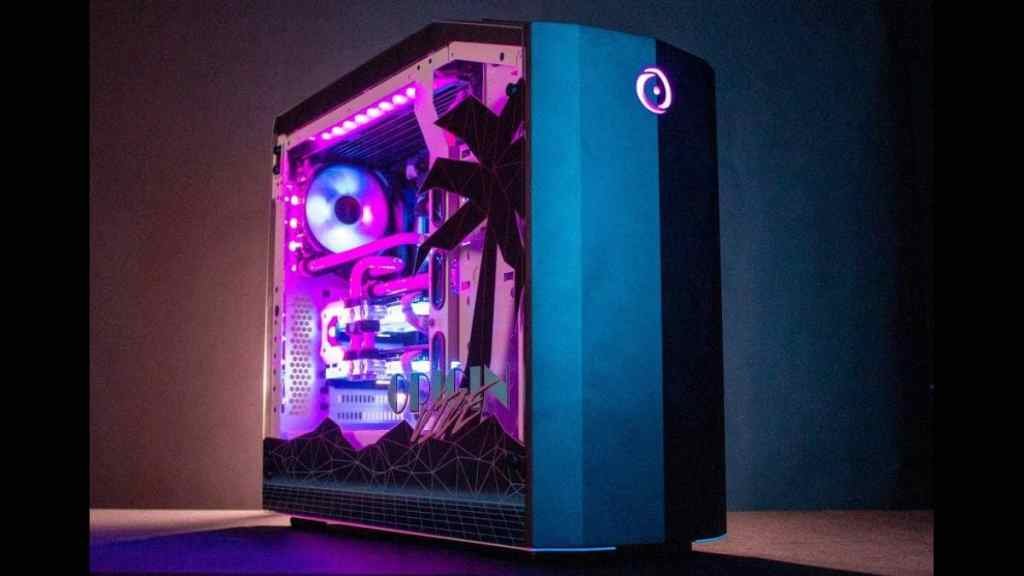A gaming PC typically weighs around 20 to 30 pounds, depending on the components and size. For gamers and tech enthusiasts, the weight of a gaming PC can be a crucial factor when moving or transporting it. Understanding how much does a gaming PC weigh can help in choosing the right setup for your needs. Let’s delve deeper into the world of gaming PCs and explore the factors that contribute to their weight.
How Much Does a Gaming PC Weigh?
Welcome, young gamers and curious minds! Have you ever wondered about the weight of a gaming PC? It may seem like a simple question, but the answer can vary depending on several factors. In this article, we will dive deep into the world of gaming PCs and explore just how much they weigh. So, grab your snacks and let’s jump into this exciting journey!
Understanding the Components of a Gaming PC
Before we discuss the weight of a gaming PC, let’s first understand what components make up this powerful machine. A gaming PC consists of essential parts such as the central processing unit (CPU), graphics processing unit (GPU), motherboard, memory (RAM), storage (hard drive or SSD), power supply unit (PSU), cooling system, and the computer case that houses everything together.
All these components work together to provide you with a smooth and immersive gaming experience. However, each part contributes to the overall weight of the gaming PC.
The Impact of Components on Weight
When it comes to determining the weight of a gaming PC, the components play a significant role. Let’s break down how each part affects the overall weight:
1. Central Processing Unit (CPU)
The CPU is like the brain of the computer, handling all the instructions and calculations. While the CPU itself is relatively small and lightweight, it is crucial for the PC’s performance. The weight of the CPU is negligible compared to other components.
2. Graphics Processing Unit (GPU)
The GPU is responsible for rendering graphics and powering your games. High-performance GPUs can be quite large and heavy, especially premium models designed for gaming. A powerful GPU can add significant weight to the overall system.
3. Motherboard
The motherboard serves as the backbone of the gaming PC, connecting all the components together. It is a flat, rigid board that doesn’t contribute much to the weight of the system, but its size can impact the overall dimensions of the PC.
4. Memory (RAM)
RAM modules are relatively lightweight compared to other components. While they may not add much weight individually, gaming PCs often come equipped with multiple RAM sticks to handle demanding games and multitasking.
5. Storage
Hard drives and SSDs are used to store your games, files, and operating system. SSDs are lighter and faster than traditional hard drives, but both contribute to the overall weight of the gaming PC.
6. Power Supply Unit (PSU)
The PSU is responsible for providing power to all the components in the gaming PC. PSUs can vary in size and weight based on their power output and efficiency rating. A higher wattage PSU may be heavier than a lower wattage one.
7. Cooling System
Cooling is essential to prevent overheating and ensure optimal performance. Gaming PCs often use robust cooling solutions such as fans, heatsinks, and liquid cooling systems. While these components add weight, they are crucial for maintaining the PC’s temperature.
8. Computer Case
The computer case houses all the components and provides protection and aesthetics. Cases come in various sizes and materials, which can impact the overall weight of the gaming PC. Larger cases with tempered glass panels tend to be heavier than compact ones.
Factors That Influence the Weight of a Gaming PC
Now that we have discussed how each component contributes to the weight let’s explore some additional factors that can influence the overall weight of a gaming PC:
1. Customization
If you customize your gaming PC with additional components such as RGB lighting, extra fans, or a custom cooling loop, it can increase the weight significantly. Custom builds often feature unique elements that add to the overall heft of the system.
2. Materials
The materials used in the construction of the gaming PC can also affect its weight. Aluminum and steel cases are more durable but heavier than plastic ones. Additionally, components made of premium materials may add to the overall weight.
3. Size
The size of the gaming PC plays a role in determining its weight. Compact PCs designed for portability are lighter than full-tower systems that offer more expansion options and cooling capacity. Consider the size and form factor when estimating the weight of a gaming PC.
Estimating the Weight of a Gaming PC
Now that we have explored the components and factors that influence the weight of a gaming PC, let’s discuss how to estimate the overall weight of a typical gaming PC. While the weight can vary depending on the specific configuration, here is a general guideline:
Average Weight Range: A gaming PC typically weighs between 20 to 40 pounds, with high-end systems exceeding 50 pounds. Compact gaming PCs may weigh around 10 to 20 pounds, depending on the components and case size.
As you can see, the weight of a gaming PC is influenced by various factors, from the components it houses to the customization and materials used. While the weight may not be the most critical aspect of a gaming PC, it is essential to consider when transporting or moving your setup.
Next time you see a gaming PC setup, you’ll have a better understanding of what goes into making it a powerful and immersive experience. So, the next time someone asks you, “How much does a gaming PC weigh?” you can confidently share your knowledge. Until next time, happy gaming!
How To Get A Gaming Desktop For $200
Frequently Asked Questions
1. How does the weight of a gaming PC impact its portability?
The weight of a gaming PC can significantly affect its portability. Heavier gaming PCs may be more challenging to transport, especially if you need to move the PC frequently to different locations. Consider the weight when choosing a gaming PC if portability is a priority for you.
2. Are there any factors that contribute to the weight of a gaming PC?
Several factors can contribute to the weight of a gaming PC, such as the size of the case, the components inside, and any additional features like liquid cooling systems or multiple storage drives. These components collectively determine the overall weight of the gaming PC.
3. Does the weight of a gaming PC impact its performance or capabilities?
The weight of a gaming PC does not directly impact its performance or capabilities. However, a heavier PC may require additional support or sturdier furniture to hold its weight securely. It’s essential to consider the weight distribution when setting up and using a heavy gaming PC to prevent any accidents.
4. How can I determine the weight of a gaming PC before purchasing?
You can typically find the weight of a gaming PC listed in the product specifications provided by the manufacturer or retailer. If the weight is not explicitly mentioned, you can estimate it based on the size of the PC case and the components it contains. Additionally, you may inquire with the seller for more precise information on the PC’s weight.
Final Thoughts
In conclusion, the weight of a gaming PC can vary depending on the components used. On average, a gaming PC typically weighs between 20 to 30 pounds. When considering purchasing or moving a gaming PC, it’s important to factor in its weight and the portability needed. So, how much does a gaming PC weigh? Remember to account for its weight to ensure ease of transportation and set up.




